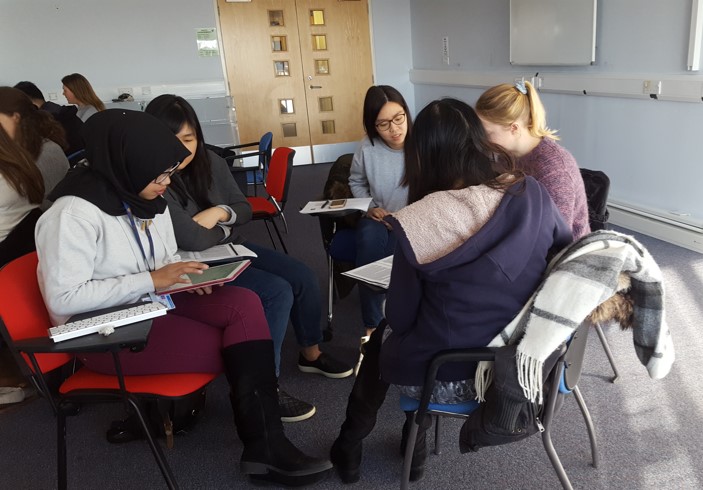Dr Elizabeth Evans
School of Psychology
Medical Sciences
What did you do?
Used real-world examples of situations students might go on to face in their professional careers. Made use of interactive seminars, OMBEA, peer support and formative assessment to help students develop a deeper, detailed understanding of key knowledge and the application of important theoretical models.
Who is involved?
Stage 3 students on the School of Psychology Eating and Weight Disorders module (PSY3033).
How did you do it?
Seminars gave students the opportunity to put into practice what they had learned in the lecture. In one case, they were given a real-world situation and asked to develop an intervention to reduce eating disorder risk. In others, they developed decision trees and infographics to represent links between important concepts and identify key ideas for revision and assessment. They also practiced applying DSM-5 diagnostic criteria for eating disorders and treatment approaches to case examples using the materials (e.g. decision trees) they had developed.
The use of real-world scenarios is known as Psychological Applied Learning Scenarios (PALS). One successful scenario involved a simulated request from the University gym for an eating disorder prevention programme. Students needed to make decisions about who they would focus on with the campaign e.g. men, women or both? Age and setting? Would the target population be those who pursued a very thin body, or an extremely muscular one? What theoretical framework would be drawn on, and how would intervention materials be delivered in practice?
Students then gave a two-minute presentation about their decisions resulting in a variety of ideas and some good quality discussions. After the seminar, summaries of the interventions were shared on Blackboard so that students could view the work of their peers.
For seminars and lectures, if there was a sensitive topic where students might be reluctant to openly share their views, OMBEA was used so that they could share opinions anonymously. OMBEA also helped to overcome some of the problems associated with working with larger groups as it meant everyone could get their opinions heard, and enabled responsive tailoring of session content to student needs and interests.
Why did you do it?
Using real world scenarios is something that really engages students and allows them to see how theory and research can be put into practice. Psychology graduates go on to work in a wide variety of careers and many of the skills developed, in terms of addressing a problem and then developing an intervention, are skills that will really help them in the future.
Feedback from students during lectures and formative assessment identified that students had difficulty with applying treatment models for eating disorders. Getting students to develop their own summary materials, and then use them to develop treatment plans, was a successful way of responding to student feedback. It also allowed students to support each other as individual uncertainties/ misunderstandings could be identified and corrected by the students’ peers as part of the collaborative processes.
Does it work?
There is a lot of evidence for success for this module:
There were two TEA nominations, the text of which highlighted that students enjoyed the interactive nature of the seminar sessions.
Importantly the outputs that students produced such as the decision trees and the summary of interventions highlighted a thorough understanding of the topics covered and some innovative ideas around intervention development.
Module feedback ratings were very high, indicating course enjoyment and the acquisition of deep, professionally-relevant knowledge.
OMBEA was also used to establish how students’ confidence increased over time. Students were asked to rate their confidence with a particular topic which informed what was covered in the seminars. When this was followed up there was an increase in the confidence levels of the students. I’m hoping to look at this in more detail when I run the sessions this year.
Interested in finding out more
If you would like to find out more about using OMBEA you can sign up to the OMBEA: Engaging students in lectures with digital polling workshop or contact LTDS@ncl.ac.uk
For further details about the case study please get in touch with Elizabeth Evans.
Contact Details


